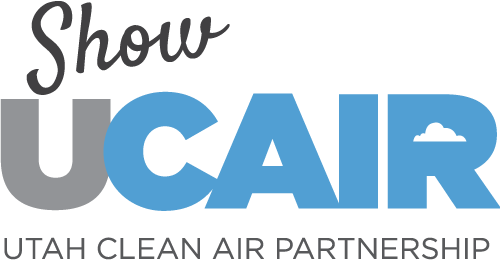We had another informative partners meeting in November 2020. The first presenters were Kerry Kelly and Dr. Greg Madden with the University of Utah. They asked for meeting attendees to participate in a focus group for their Dynamic Feedback Idling Behavior Project. Afterwards, we got an air quality update from Bryce Bird, Director of the Division of Air Quality.
Smart Air – Kerry Kelly, PhD & Dr. Greg Madden
The project is entitled Smart Air and focuses idling and using dynamic feedback to influence behavior. Research shows that 7% of vehicle operating time is spent idling and that idling creates microclimates of pollution. It is important to be respectful of people that pass through these microclimates but also of the people that are in those types of environments for prolonged periods of time due to occupation or other circumstances. One group particularly vulnerable in these microclimates are children. They breathe more quickly than adults and their lungs are still developing, making them particularly vulnerable to the air pollution often found in school drop-off and pick-up zones for example. Another at risk group are people in wheelchairs, who inhale 60% more pollutants than the average standing adult person. This is partly because they are breathing at a lower elevation than those standing up.
The goal of the project is to build on the already successful strategy of digital speed limit signs. These signs detect and display your speed. If you are over the limit, lights flash around the displayed speed letting you know to slow down and letting everyone around you know that you are not following the social norm. Based on this strategy, Smart Air wants to provide localized, accurate, air quality information combined with community crafted messaging to encourage good behavior regarding idling. The project would integrate cost effective air quality measurements, leveraging the work they have done on low cost sensors that can rapidly identify idling vehicles and combine that data with effective messaging.
When it comes to idling, it is important to think about cost and benefits. One benefit is keeping the car warm or cool and keeping the radio on. Some perceived benefits such as not restarting the engine saves gas or better for the starter are myths. Currently, there are little to no immediate costs of continuing to idle. They plan to present some messages about these myths. However, it is unlikely this will significantly behavior. Their main messaging strategy will focus on increasing the moral payoff, reducing guilt and increasing self-esteem, associated with turning your engine off. They believe this approach will be most successful in locations where populations are most vulnerable such as hospitals and schools. Based on the real time display of data drivers will know that idling behavior is being monitored and that others will know if social norms are being violated. In addition to displaying real time idling information aimed at encouraging compliance, thank you messages will also be shown to act as a moral payoff.
DAQ Update – Bryce Bird, Director, Division of Air Quality
In November, Salt Lake City and Provo City were redesignated by the EPA as attainment areas for air quality. It took DAQ and all partners involved about ten years to achieve this goal, and all there will continue to be a lot of work to maintain this new designation. Additionally, regarding messaging, the first part of the DAQ messaging is a color-coded system that lists real time air quality. The second component is an action forecast, an indicator of when we should be taking actions to improve air quality and mitigate red air days.
PARTNER ROUNDTABLE
Following the presentation, partners shared what projects and initiatives they are currently working on. These included:
Michelle Brown, Department of Administrative Services –The DAS fiscal year annual report is now available online. They also have their own air-quality dashboard available on their website.
Thom Carter, UCAIR –
- The UCAIR Board held their annual Grants Review meeting. We want to thank everyone that applied. We appreciate all the hard work that goes into the applications and the great ideas.
- Greta DeJong is retiring from Catalyst Magazine. She has been a great partner to all and will be missed.
- Thank you to all that attended and participated in the meeting today. Please listen to the directives from the governor.
NEXT MEETING: December 11, 2020, 9:00-11:00 AM

